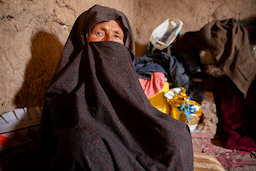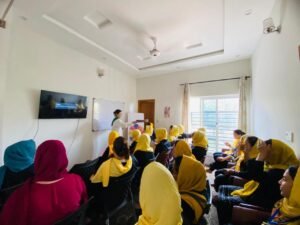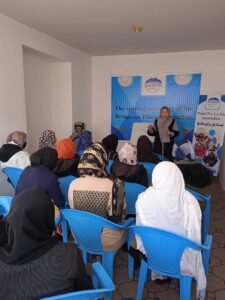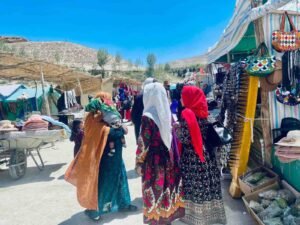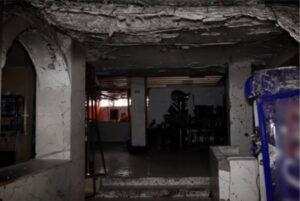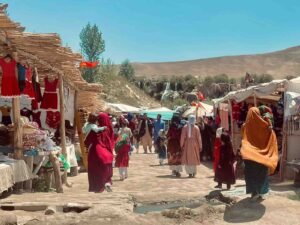Afghan Women Unite Against Gender Apartheid

Photo: @University of San Francisco
By Nazila Jamshidi
“Afghan women are coordinating their advocacy to strengthening the fight to codify gender apartheid as a crime against humanity.”
A group of Afghan women advocating for the classification of gender apartheid as a crime against humanity gathered in Washington D.C. for a two-day workshop on April 8 and 9. Led by Yalda Royan, Founder of Sisterhood and Solidarity, the event aimed to deepen understanding of gender apartheid and highlight ongoing efforts toward establishing a coordination mechanism for Afghan women and their allies. Royan expressed, “Through such workshops, we aim to outline concrete steps for future advocacy for women’s rights in Afghanistan.”
The two-day workshop held at the Atlantic Council headquarter office, which brought together 35 advocates, experts, practitioners, and lawyers, marked a significant milestone in advancing advocacy for the codification of gender apartheid. It served as a crucial platform for sharing important insights into the concept of gender apartheid, international human rights laws, existing mechanisms, and the role of the UN Security Council in prosecuting gender apartheid as an international crime. Throughout the workshop, various tools and strategies were shared and discussed, including documentation, legal/technical work, advocacy and activism at different levels, public mobilization, and awareness raising. These discussions underscored the collective effort to equip advocates and practitioners with the necessary resources to effectively address gender apartheid. Most importantly, these endeavors reflect the strong commitment of Afghan women to empower and uplift their fellow women through fundamental approaches that hold the potential for lasting impact.
Recognizing that advocating for the codification of gender apartheid as a crime against humanity is a long journey, Afghan women have actively participated in various advocacy efforts aimed at challenging a governance system that systematically segregates women, excluding them from public spheres and spaces. Metra Mehran, a participant and an Afghan women’s rights activist, emphasizes, “While the codification of gender apartheid alone may not fully address the challenges faced by women in Afghanistan, it serves as a complementary measure that exerts significant pressure on the regime to revise its policies regarding women.” Mehran further expressed hope that events like these will contribute to achieving coordinated and strong activism among Afghan women.
As participants discussed, while there are significant challenges in the journey to codify gender apartheid as a crime, there are also numerous strengths and tools available to advocates. For instance, data on the 150 Taliban decrees, 95 of which directly target women, along with women’s narratives and stories from living under the regime, provide crucial evidence. Additionally, the growing community of Afghan women advocates outside the country, active political will to hold the Taliban accountable, a robust network of international allies and experts, and access to media and social media platforms, all serve as powerful resources for advocacy campaigns.
Despite these resources, there remains a need for coordinated efforts and the establishment of a global network of advocates and activists to ensure unified and effective campaigns. What is particularly significant in this campaign is the strong determination among Afghan women to codify gender apartheid as a crime, holding the regime accountable for its oppressive policies. These women are seizing every opportunity and making every effort to compel the international community to recognize the reality of gender apartheid in Afghanistan and to codify it as a crime against humanity.
For Afghan women who understand the enormity of the devastation and the long and challenging path to improving the situation, the recognition of gender apartheid in Afghanistan and its codification as a crime against humanity represent potent tools for promoting and mobilizing a coordinated international response. This includes implementing sanctions and boycotts against a regime that inflicts cruelty upon women.
Nazila Jamshidi – a gender equality and human rights specialist involved in Afghanistan’s development and democracy processes for the past decade – has worked for the UN, USAID, the International Federation of Red Cross.
Note: The contents of the article are of sole responsibility of the author. Afghan Diaspora Network will not be responsible for any inaccurate or incorrect statement in the articles.

